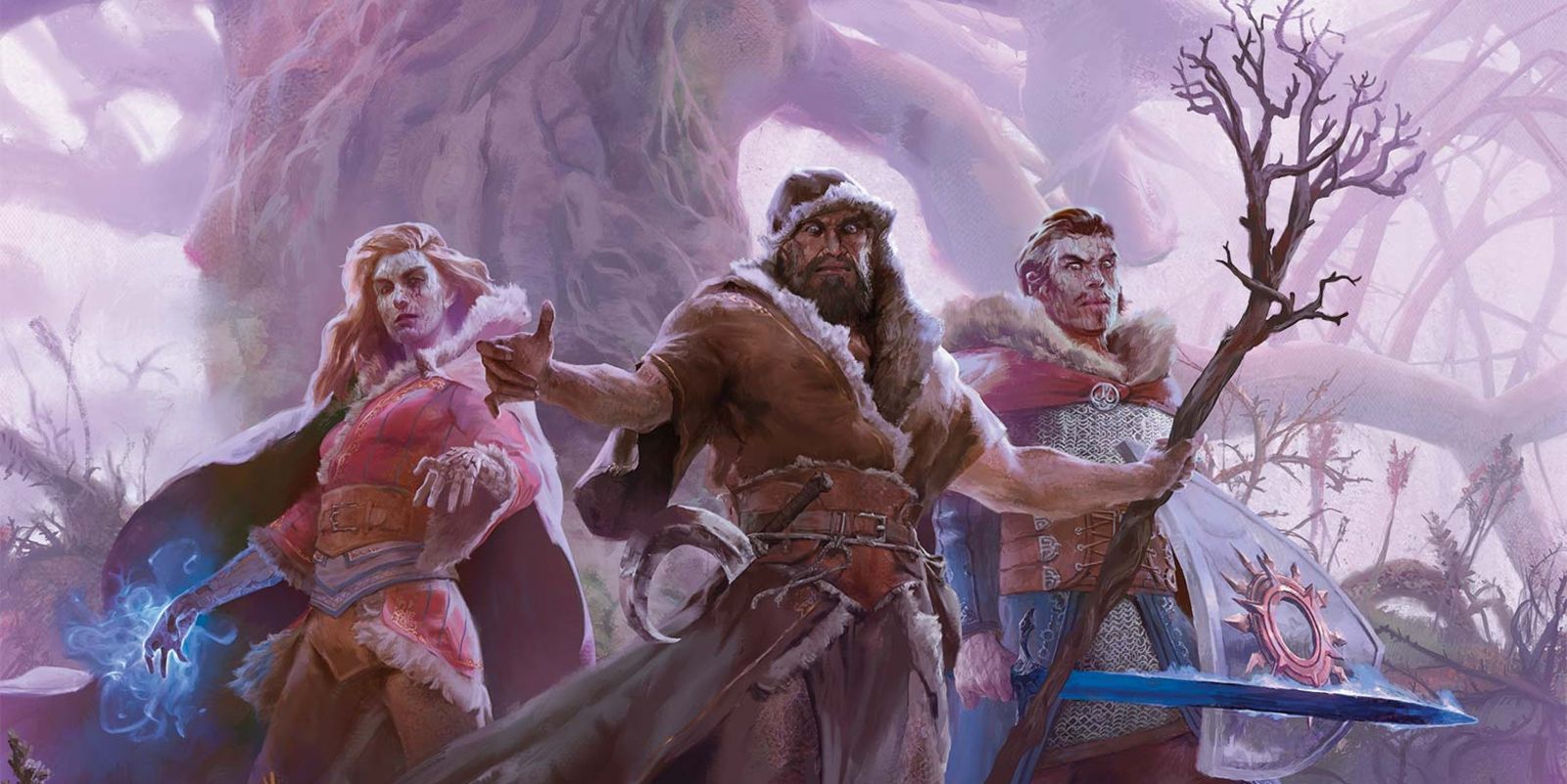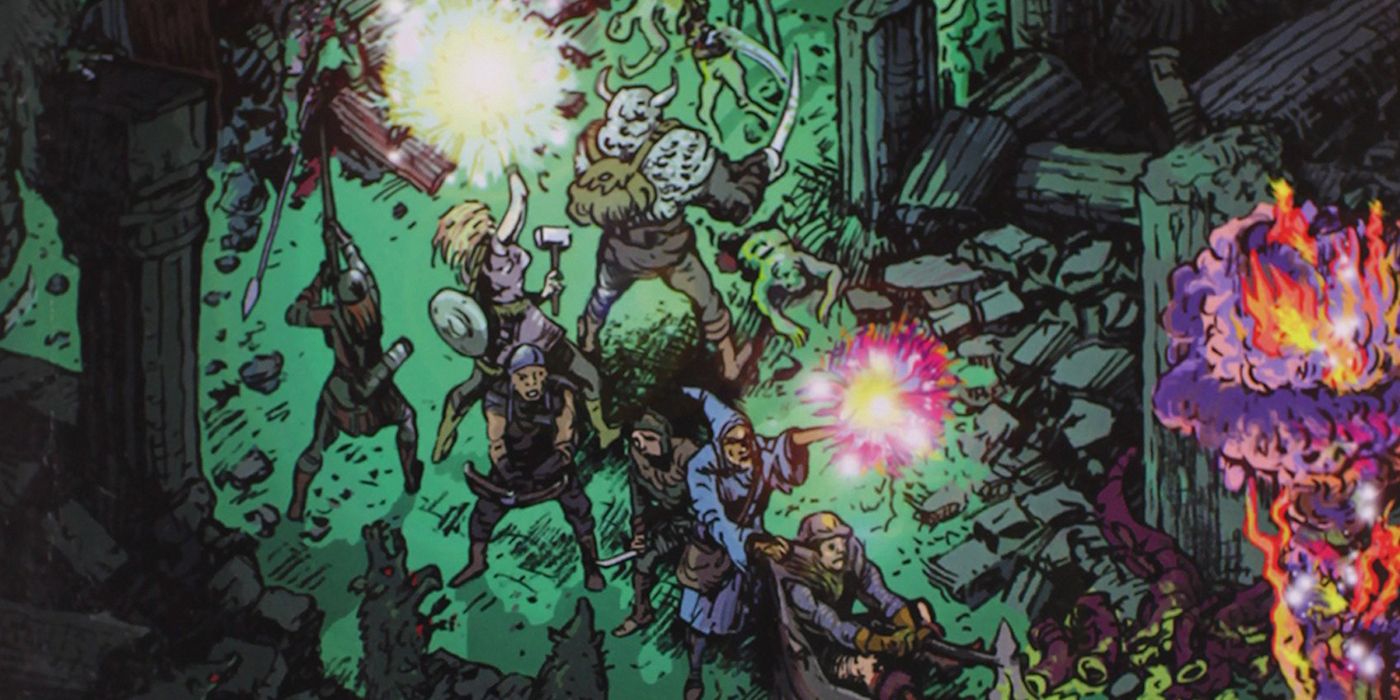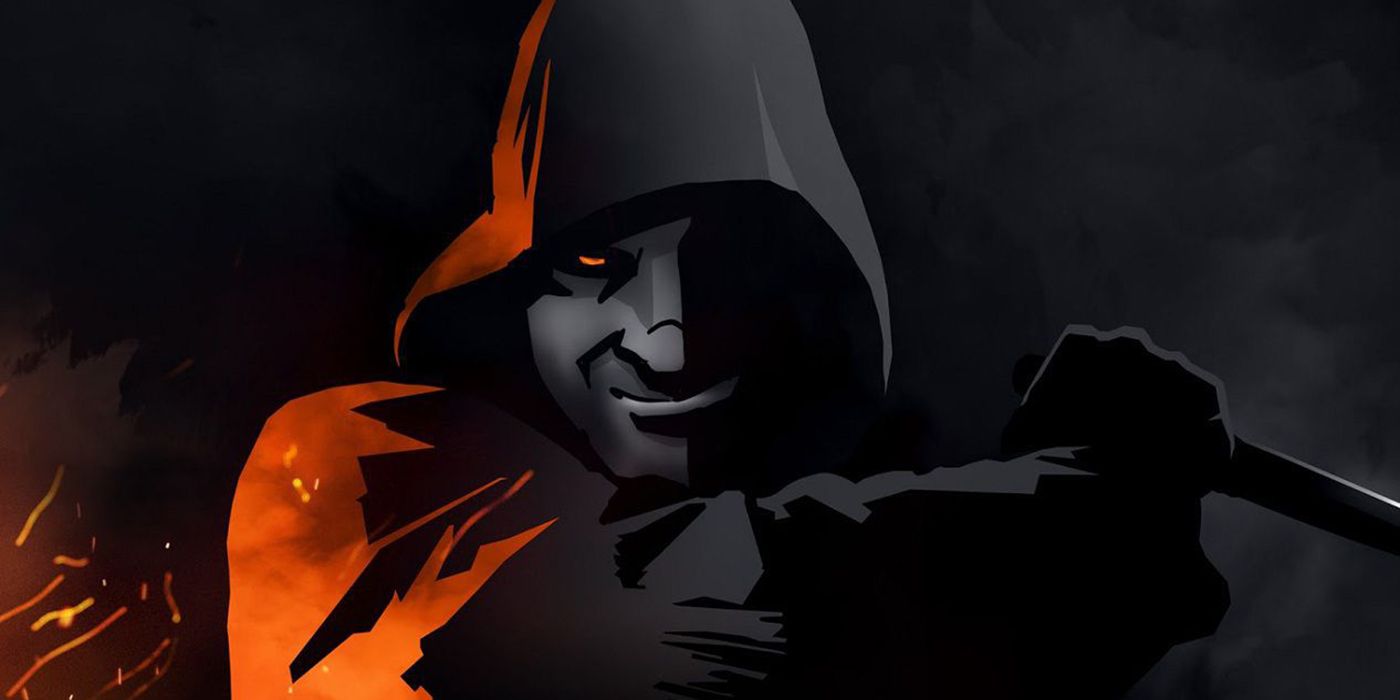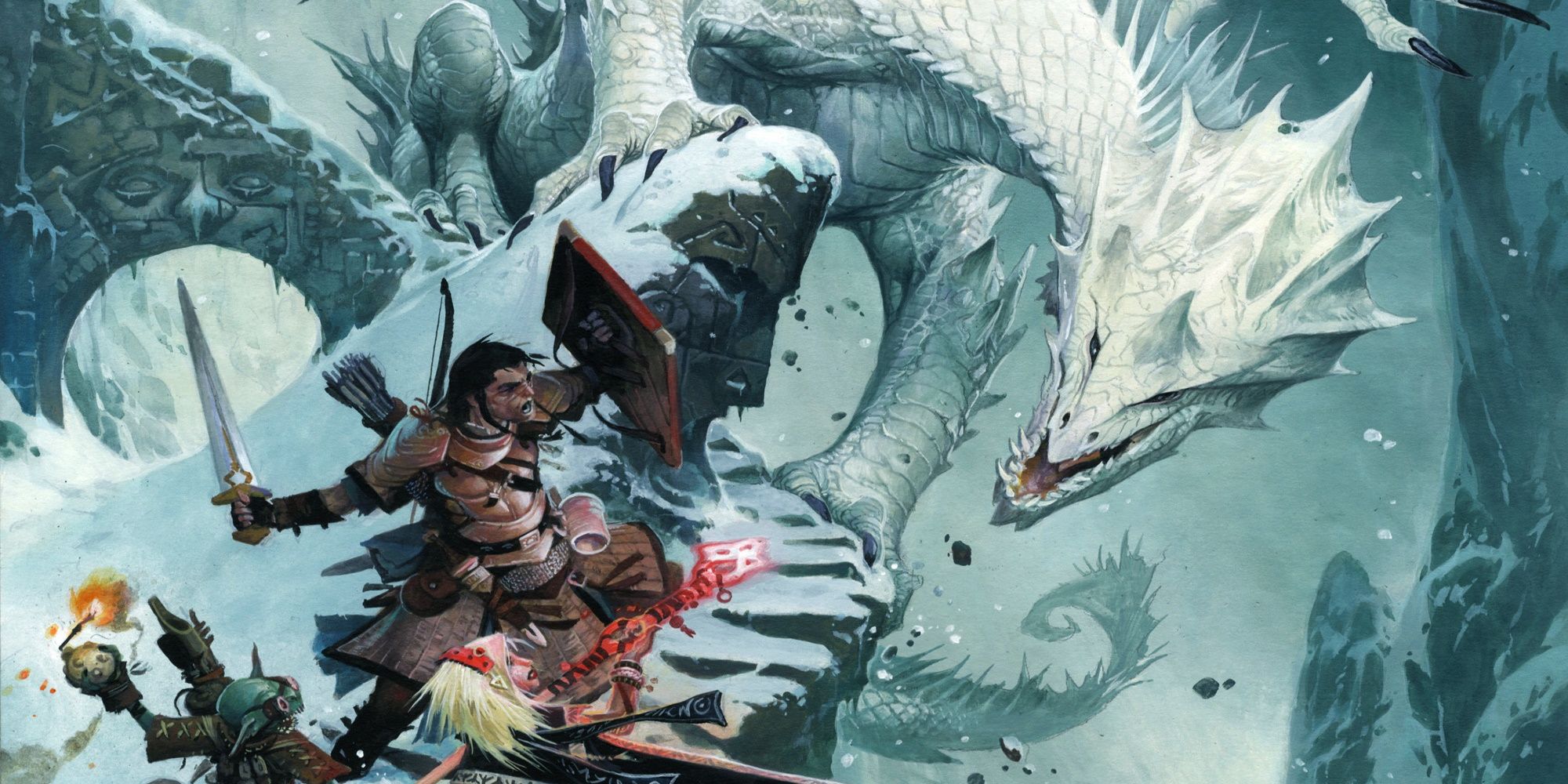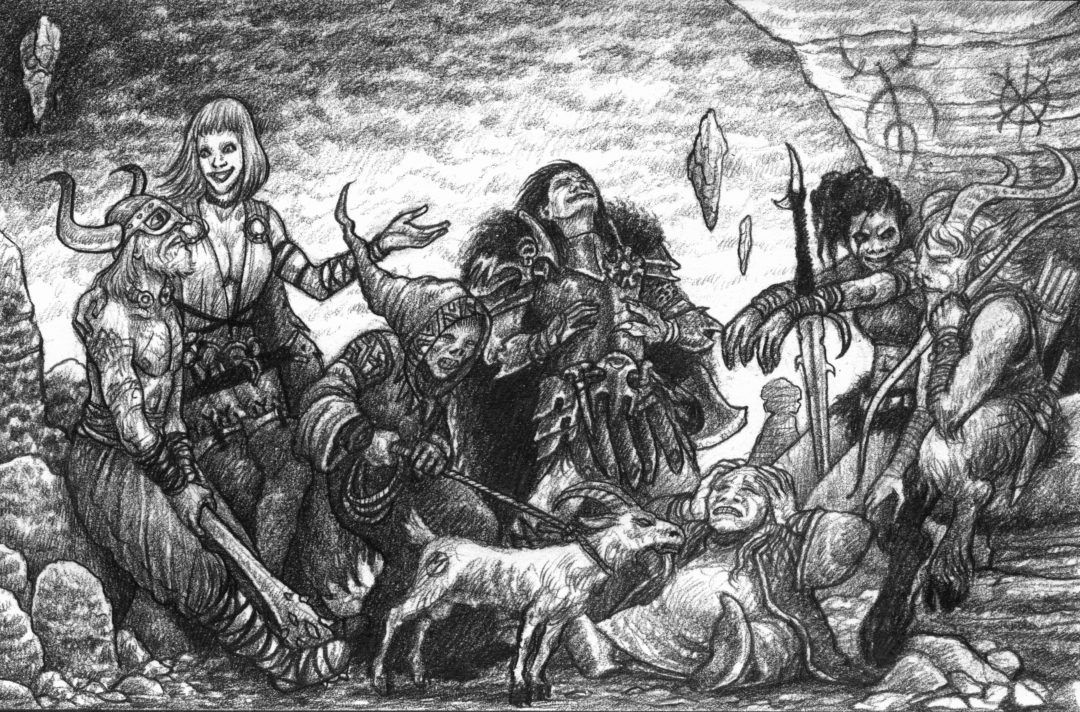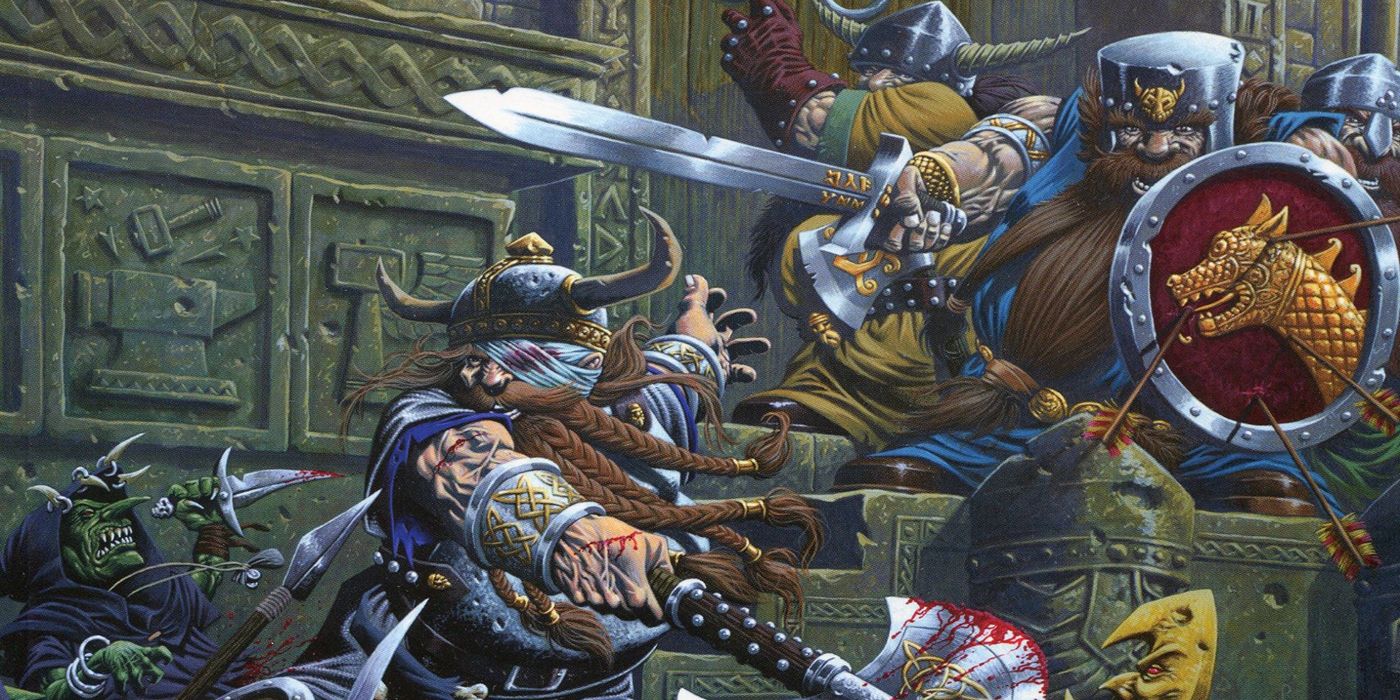Dungeons and Dragons is an amazing game, but it is not the end-all-be-all of fantasy tabletop roleplay games. TTRPGs certainly wouldn't be as popular as they are today without D&D, but that doesn't mean the system is right for every group. Some players have difficulty with D&D's needlessly complex rules or they find combat to be a rote exercise of rolling dice and subtracting hit points. Countless other games have been created since the first d20 was rolled and many have thrived where Dungeons and Dragons comes short.
Here are five of the best fantasy TTRPGs that aren't Dungeons and Dragons.
Dungeon World
Designed by Adam Koebel and Sage LaTorra, Dungeon World is a TTRPG that focuses more on roleplaying and less on mechanics. A hack of the popular Powered by the Apocalypse system, Dungeon World mostly eschews the polyhedral sets famously used in Dungeons and Dragons and instead uses two six-sided dice for the majority of rolls.
Specialized dice are still used for damage rolls and the like, but rather than having a binary "succeed or fail" system of rolling dice, Dungeon World includes mixed successes, which makes every roll exciting and gives it consequences. A player will never miss an attack and have that be their entire turn. For one, missing a hack and slash roll opens a character to danger. Second, there are no turns in Dungeon World. Combat is more fluid, which allows for players and enemies to respond based upon what makes sense in the moment.
Dungeon World isn't as crunchy as other RPGs. While its simple design might leave min-maxers with something to be desired, it's incredibly easy to learn and get to the table.
Blades in the Dark
John Harper's Blades in the Dark is the perfect system for groups who argue about who gets to be the rogue. Campaigns take place in an urban fantasy setting, where the players are members of a thieving crew. Generally, each session will consist of players planning and then executing a heist. Doing so might draw the admiration or ire of notable factions throughout the city and the players' reputations with these factions will heavily impact how the story plays out.
Blades in the Dark is another hack of the Powered by the Apocalypse system, so it comes with all the advantages of Dungeon World in that it's easy to learn and rolls are always narratively satisfying. Mechanically, Blades in the Dark strays further from the original Apocalypse World than Dungeon World does. Blades in the Dark only uses six-sided dice, but instead of rolling two for every move, players roll several depending on their modifiers and take only the highest value.
Pathfinder
Originally an offshoot of Dungeons and Dragons 3e, Pathfinder is now in its second unique edition and offers several exciting variances while still feeling familiar to D&D. A key feature of Pathfinder 2e is the change to the action economy. Each round, players can take up to three actions on their turn and one reaction on another player or enemy's turn. Reaction abilities might be granted by a shield a character has equipped, which makes equipment feel like an active part of play rather than a passive bonus to the armor statistic. The action system strikes a balance between Dungeon World's dynamic, story-focused combat and D&D's meaty "dudes on a map" dice rolling.
Pathfinder has also moved away from some of the fantasy genre's problematic elements. Instead of referring to the different peoples of the world as "races," Pathfinder refers to them as ancestries. It's a refreshing take where D&D is still stumbling in its depiction of orcs and evil societies.
Zweihänder
Marketed as a "grim and perilous RPG," Zweihänder is a low fantasy system which is often morally ambiguous and darkly humorous. Zweihänder is "world agnostic," so it can fit into any world of the player's, imagination though it will invariably paint that world in shades of grey.
Daniel D. Fox's Zweihänder is a dangerous system. It only takes a few hits to injure a character or slay them outright. What little healing there is to be found also comes with side effects. Imbibing a tincture may remove the effects of an injury, but it will also grant a point of corruption. The more corruption a player has, the easier they can slip into chaos and suffer lasting effects.
Zweihänder uses percentile dice (two 10-sided dice which allow a player to roll from 1-100) to resolve ability checks. If a player fails an ability check, they can spend from a collective pool of fortune points to re-roll, but once spent, those points become misfortune points, which the game master can use against the players.
Warhammer Fantasy Role Play
Now in its fourth edition, the Warhammer Fantasy Role Play system has been around much longer than any other system on this list and it brings players into the beloved Warhammer universe. The fourth edition brings back two things veterans of the series will appreciate. First, fourth edition utilizes percentile dice like its first and second editions. Fourth edition also returns to the Old World. The Warhammer series moved away from the Old World in 2015 when it was replaced by the Age of Sigmar, but the setting has returned in Warhammer 2: Vermintide and Total War: Warhammer 2.
WFRP features a robust career system which characters progress through, granting them access to a plethora of skills. These careers vary from the conventional soldier or thief to the mundane beggar or rat catcher. Each comes with their own unique advantages and flavor.
As a descendant from the tabletop war game, WFRP includes crunchy combat and the fourth edition introduces the advantage system. When a player or enemy attacks the opponent, the momentum of the battle swings in the direction of who rolled the best. A fight can snowball quickly, meaning players can feel powerful or get pushed to their limits.

